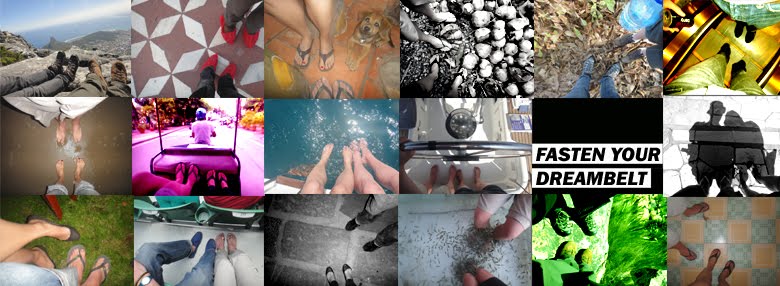Une des choses que le guide nous as appris lors de nos nombreuses marches dans le bush c’est que les animaux isoles sont généralement les anciens qui ont été écartés par les jeunes males. Les hippos, buffles, éléphants et autres animaux m’ont rappelés la bonne vieille théorie de Darwin. Et le monde dans lequel nous vivons. Apres avoir protégés, nourris et éduqués leurs petits, ces derniers chassent leurs parents du clan. Leger Mauvais esprit, léger !
Les vieux males isoles sont les plus dangereux. Parce qu’ils sont seuls, vulnérables et probablement un peu amers.
Les lions écartent également les vieux males lorsque ceux-ci sont trop faibles pour se défendre. Mais pourquoi tant de haine me suis-je demander ? Le pouvoir ! Ils veulent dominer le groupe, devenir khalife a la place du khalife, le Roi Lion quoi… Et pendant ce temps la, c’est bobonne qui doit aller faire les courses. Une fois le repas sur la table, le lion se sert le premier et laisse les restes a ses petits, quitte a les laisser mourir de faim si la chasse n’est pas assez conséquente !
Je ne suis pas un expert en animaux de la savane ou un psychologue pour gros chat… C’est la nature, c’est beau, c’est cruel et c’est comme ca. Mais étant donne que nous sommes en train d’essayer de comprendre le monde qui nous entoure – et probablement influencer par une récente lecture sur les craquages successifs des Nations Unies depuis 30 ans (Chasing the Flame, Samantha Power) – je n’ai pu m’empêcher de faire un bon gros parallèle bien simpliste : le comportement de beaucoup d’êtres humains qui nous parait si souvent si choquant est simplement l’expression de notre instinct animal.
Devons nous donc lutter perpétuellement contre notre nature et utiliser ce qui semble nous différencier des lions : la conscience. Ou bien accepter les bêtes bêtes que nous sommes instinctivement.
La plupart d’entre vous répondront : Petit a. utiliser sa conscience. Mais quand je regarde le monde tel que je le perçois et tel que les historiens mainstream l’ont défini je ne trouve que rarement cette conscience. A qui incombe (ou decombe) donc la responsabilité de la définition de cette conscience morale et l’adoption du comportement qui en découle.
L’enjeu parait trop grand pour la confier a l’individu qui a prouve a plusieurs reprises qu’il était trop susceptible d’être tente par ses instincts. La famille : oui mais non. La famille telle que le sociologue (la fameuse famille nucléaire) la définit traditionnellement est en train de disparaitre. De plus en plus, la famille et i.e. société sont composes, décomposes et recomposes d’individus. Le gouvernement. J’en vois qui rigole au fond. En théorie j’ai envie de dire oui. Sauf que le monde est un peu complique pour pouvoir se permettre de belles tirades à l’ONU contre les Etats Unis toutes les semaines. Il y en a qui ont quand même eu les noix de le faire et c’est beau. Pragmatisme économique versus conscience morale ? Vous avez 3 heures !
Mais in fine les belles tirades ne changent rien. Ce sont les actions qui permettent de vraiment définir la conscience morale d’un ou un groupe d’individus. Et le fait est que, dans les pays africains (comme Mugabe au Zimbabwe), comme dans le monde (the US of A) les lions dominants vieillissent et d’autres vont bientôt prendre leur place.
Seul le leader peut aujourd’hui vraiment se permettre d’avoir une conscience morale et de vivre d’après ses principes. Barack Obama a déclaré le 22 Septembre dans son discours aux nations unies que « chaque fois qu’un enfant meurt d’une maladie curable cela choque notre conscience ». Il a tort. Cela ne choque plus grand monde. Ce qui me rend optimiste c’et que lui a l’air vraiment touche. Il a d’autres banquiers à fouetter. Il fait ce qu’il peut pour tenir la Barrack…mais bon il ne faut pas trop lui en demander non plus.
Je ne suis pas naïf : Nous sommes dans un monde conflictuel ou chacun la joue instinctivement perso, ironiquement c'est contre productif 99% des cas sur le long terme (cf. l’Histoire de l’Humanité). En revanche le cynisme me semble être, comme souvent la solution de facilité. La réédition dans le combat que nous menons tous contre notre conscience.
« Where lies difficulty is opportunity ». A. Einstein
 From the skyscrapers of Pudong (including one that looks like a bottle opener that the japanese were not allowed to put their flag up on because it is the tallest in Shanghai) to the "platanes" lined street of the french concession through the bustling streets of the Yunan Bazaar and Gardens - you will never be bored in Shanghai!
From the skyscrapers of Pudong (including one that looks like a bottle opener that the japanese were not allowed to put their flag up on because it is the tallest in Shanghai) to the "platanes" lined street of the french concession through the bustling streets of the Yunan Bazaar and Gardens - you will never be bored in Shanghai!


